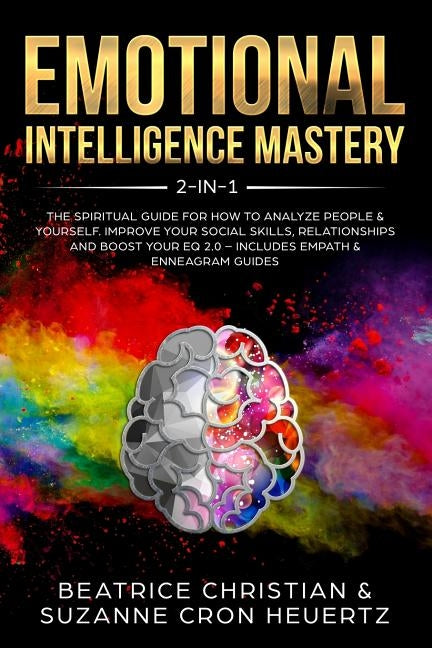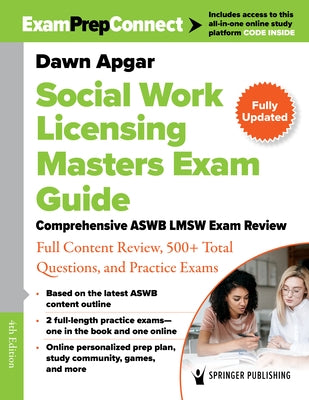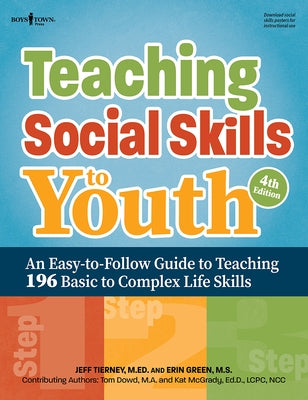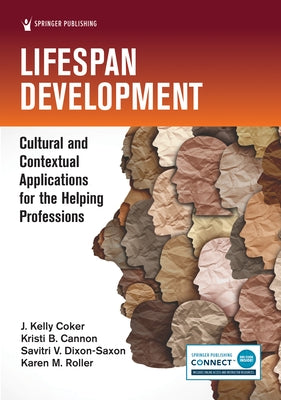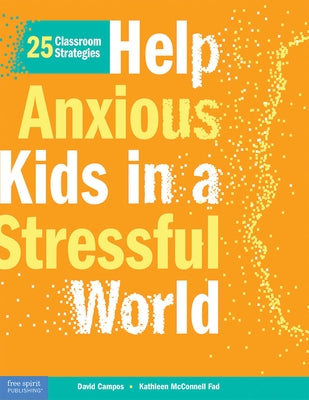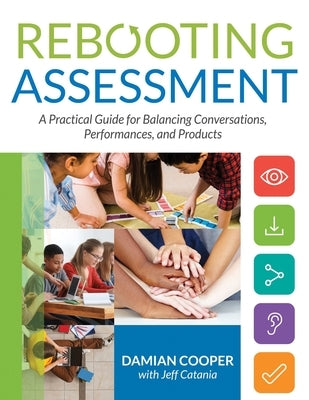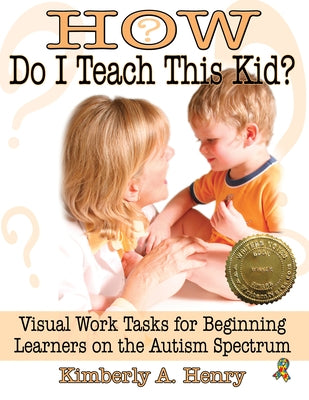Infant Mental Health (IMH) and the Pyramid Model (PM) are two frameworks with an important common goal: supporting the mental health and social-emotional well-being of infants, young children and their families. For the first time ever, one book integrates these two frameworks to create a more effective, knowledgeable, and responsive early childhood workforce.
Developed by a team of visionary early childhood experts, this timely book debunks misunderstandings around IMH and PM and clearly illustrates how these two approaches can combine to support better outcomes for children and families. This book reviews the core concepts of both approaches and explores how integrating them can help programs and professionals:
- Strengthen professional development by implementing an integrated reflective practice approach
- Work effectively for diversity, equity, inclusion, belonging, and justice
- Use a trauma-informed approach to support healing in young children and families
- Apply evidence-based strategies to address behaviors that parents and teachers find challenging
- Act as both "stress detective" and co-regulator when children are dysregulated
- Understand and respond to children's needs rooted in multidisciplinary perspectives
- Increase parental confidence and strengthen the parent-child relationship
- Enhance data-informed decision-making
- Use the best of mental health consultation and Pyramid Model coaching to meet infants' and young children's needs
PRACTICAL MATERIALS: Get how-to guidance on blending these frameworks, authentic examples and case studies that illustrate effective practices, and dozens of online support materials (available on the Brookes Download Hub).
About the Author Dr. Neal M. Horen is a clinical psychologist who has focused on early childhood mental health for the last twenty years. He is Director of the Early Childhood Division for the Georgetown University Center for Child and Human Development. Dr. Horen has worked closely with all 50 states, numerous tribes, territories, and communities in supporting their development of systems of care for young children and their families. He is the co-director of the Head Start National Center on Health, Behavioral Health and Safety, director of the Center of Excellence for Infant and Early Childhood Mental Health Consultation, the Infant Early Childhood Mental Health TA Center, co-director of the National Training and Technical Assistance Center for Childrenâ (TM)s Mental Health, and Georgetown lead for the MIECHV TA Center, the HRSA Evidence to Impact Center, the Early Childhood Comprehensive Systems TA Center and the Early Intervention Personnel Center. In that capacity he has delivered hundreds of trainings across the country and has co-led development of nationally recognized materials. He leads Georgetownâ (TM)s Early Childhood Mental Health Certificate programs and has helped to developed innumerable materials related to infant and early childhood mental health consultation including books, training guides, evaluation guides, monographs and he also continues to be active in providing mental health consultation as part of his clinical practice. In addition, Dr. Horenâ (TM)s primary interest is in early childhood mental health and he has lectured extensively on infant and early childhood mental health, challenging behaviors in young children, social skills development, as well as the impact of trauma on child development.
Robert M. Corso, Ph.D., is Executive Director of the Pyramid Model Consortium and a Senior Research Associate at Vanderbilt University. Previously, he served as Project Coordinator for the Center on the Social and Emotional Foundations for Early Learning. Additionally, he was on the leadership team for the National Center on Quality Teaching and Learning and served as Principal Investigator for the Head Start Disability Services Quality Improvement Center.
Jordana Ash, LCSW, IMH-E(R), is a senior clinical instructor at the University of Colorado School of Medicine, Department of Psychiatry and co-director of Harris Community Fellow program in child development and infant mental health. She served as Colorado's inaugural Director of Early Childhood Mental Health in the Office of Early Childhood. That position represented public/private partnership and state level commitment to the role. In 2015 Ms. Ash developed the Colorado Early Childhood Mental Health Strategic Plan which continues to guide efforts and investments across the state. She previously held the position of senior program manager of Early Childhood Services at Mental Health Partners (MHP) in Boulder, Colorado. In that role, she created and implemented the award winning, nationally recognized Kid Connects model of early childhood mental health consultation and continues to oversee statewide and national adoption of the Kid Connects model elements. During her tenure at MHP, she developed a tool for reflective supervision which focuses on the experiences of the supervisee and is used across the country in clinical, academic and research efforts. Ms. Ash is a founding member of the RAINE group, dedicated to the advancement of early childhood mental health consultation practice, policy, and research. Her recent publications can be found in the ZERO TO THREE journal and the December 2016 edition of Newborn & Nursing Review.
Lynette Aytch, Psy.D., is Director of the Leadership Development Institute (LDI) at ZERO TO THREE. Her mission is to support and empower a diverse national and global network of early and mid-career leaders spanning varied professions, sectors, demographics, and lived experiences to advance innovative system and policy change to improve outcomes for babies, young children, and families rooted in a commitment to excellence, accountability, diversity, equity, and inclusion.
Prior to ZERO TO THREE, Dr. Aytch was Director of Organizational Development at the North Carolina Partnership for Children (NCPC), where she led an initiative to strengthen executive leadership, governance, community engagement, and financial sustainability of the statewide network of Smart Start early childhood partnerships. Prior to NCPC, Dr. Aytch served as Assistant Director of the National Center for Early Development and Learning (NCEDL) at the Frank Porter Graham Child Development Institute at UNC-Chapel Hill.
Dr. Aytch completed a post-doctoral fellowship in early intervention at the Frank Porter Graham Child Development Institute, holds a Doctor of Psychology degree from Rutgers University, and a Bachelor of Science in Psychology from Southern University.
Julie Betchkal, M.S., currently serves as the Pyramid Model Co-Director with the Wisconsin Alliance for Infant Mental Health, where she guides the State Leadership Team's work to build infrastructure, provide training and coach programs for installation of the Pyramid Model framework in early care and education systems. She brings 19 years of Early Childhood Special Education experience in supporting children and families in rural areas, with emphasis on addressing the specific needs of children with autism. While teaching, Julie served as adjunct faculty for the University of Wisconsin-Eau Claire, where she received her M.S. degree in Special Education. After leaving the classroom, Julie provided 14 years of public school based special education training and technical assistance with emphasis in using the functional behavioral assessment process to design and implement teaching plans. Julie has helped to lead Wisconsin's Pyramid Model implementation efforts- serving as a trainer, coach and coordinator, since 2005. She has served on the Board of Directors for the Pyramid Model Consortium.
For twenty years,
Jean Budd, LPC, IMH-E(R), has developed and implemented Infant and Early Childhood Mental Health Consultation in New Jersey. Her current role is Child and Family Therapist, Fort Health, NJ, partner with Child Mind Institute. Her responsibilities are individual and group therapy based on evidence-based practices, creation of a holistic treatment approach and improvement of best practices and policies. Previously, Jean was Assistant Director for Infant and Early Childhood Mental Health Consultation, Socio-Emotional Formation Initiative (SEFI) at the Center for Autism and Early Childhood Mental Health, Montclair State University. Jean supported the quality improvement mission for Grow New Jersey Kids TAC/QIS efforts through collaboration, consultation with childcare professionals and families in developing and implementing the IECMHC effort. She co-directed the team of IECMHC professionals, clinicians, and early childhood master- level educators. Initially, Jean was Family Support Manager, Center for Family Resources, a Head Start, Early Head Start, Family Childcare Providers and Home Visiting program, Passaic County, New Jersey. She was the NJ-AIMH Endorsement Coordinator, past president and is currently a leader for the Alliance for the Advancement of Infant Mental Health. Jean is a facilitator of Advanced Reflective Supervision and Consultation workshops and groups.
Margo Candelaria, Ph.D., is an Associate Research Professor at the University of Connecticut School of Social Work, Innovations Institute. She co-leads the Innovation Parent, Infant, Early Childhood team at Innovations. Dr. Candelaria holds a B.A. in Psychology from the Pennsylvania State University and an M.A. and Ph.D. in Applied Developmental Psychology from the University of Maryland Baltimore County.
Dr. Candelaria has extensive research and clinical experience with early childhood development and mental health, parent-child interactions, and community systems. She has worked with children and parents in medical systems, community mental health agencies, early intervention agencies, Head Start/Early Head Start, and school systems, including as an Infant and Early Childhood Mental Health Consultation (IECMHC) provider and as an embedded psychologist within the Part C early intervention system. She served as the PI for several contracts with the Maryland State Department of Education focusing on implementation, workforce development, and evaluation of IECMHC, and National Pyramid Model practices to promote social emotional skills and address behavioral concerns in young children, overseeing all evaluation efforts. Dr. Candelaria has also served as the evaluation PI on several federally funded projects focusing on IECMH systems and promotion of parent-child interactions in a variety of settings.
Corinne G. Catalano, Ph.D., is the Associate Director for Education, Inclusion, and Development at the Center for Autism and Early Childhood Mental Health at Montclair State University. She holds a Ph.D. in Teacher Education and Teacher Developmental from Montclair State University and a Clinical Mentor Endorsement in Infant Mental Health. She is a member of New Jersey's Early Intervention State Interagency Coordinating Council and is the program manager for the New Jersey Preschool Inclusive Education Project in partnership with the NJ Department of Education Office of Special Education. Corinne teaches graduate courses in Montclair's Teaching and Learning Department and is a faculty member for the Infant and Early Childhood Development Ph.D. program at Fielding Graduate University. She developed and validated the Teacher Self-efficacy for Autism Spectrum Disorder Inclusion (TSE-ASDI) Scale and is the author of articles and book chapters on teacher education, inclusion, and autism.
Kimberly Diamond-Berry, Ph.D., IECMH-E(R), IMH-E(R), is Director of Belonging for the South Carolina Infant Mental Health Association (SCIMHA). In this role she supports capacity building efforts to deepen the understanding and application of the intersectionality between IECMH and diversity, equity, inclusion, and belonging (DEIB) across child- and family-serving sectors in South Carolina. In addition to her work at SCIMHA, Dr. Diamond-Berry co-facilitates the Infant Mental Health Seminar at Wayne State University. Prior to joining SCIMHA Dr. Diamond-Berry served as Executive Director for the Michigan Association for Infant Mental Health (MI-AIMH) and supported professional development and training for IECMH professionals throughout the state of Michigan. She worked for the HighScope Educational Research Foundation, leading the research and practice arms of the organization and has also worked at ZERO TO THREE as the Senior Technical Assistance Specialist with the Quality Improvement Center for Research-Based Infant-Toddler Court Teams (QIC-CT), and for the Early Head Start National Resource Center (EHS NRC). A common thread in all of Dr. Diamond-Berry's professional experiences has been to illuminate disparities in access to resources for families with young children and children of color; and promote racial healing and DEIB among all who support, mentor, and teach them. A licensed clinical psychologist, Dr. Diamond-Berry received her doctorate in counseling psychology from Loyola University Chicago.
Faith Eidson, LMSW, IECMH-E(R), is a clinical social worker and an endorsed Infant and Early Childhood Mental Health Clinical Mentor. Faith began her career as an infant mental health clinician visiting with families in their homes to provide services. In this role, Faith found her calling and became enchanted by the ways in which babies and caregivers fall in love with one another. As a result, Faith has dedicated her career to supporting healthy relationships for babies, young children, families and the dedicated and specialized workforce who serves them.
In addition to her early clinical work, Faith has served as a clinical supervisor in multiple programs and as a program director for workforce initiatives with the Alliance for the Advancement of Infant Mental Health. Faith currently works as a program specialist with Zero to Thrive at the University of Michigan. Faith also maintains a private practice where she provides training and reflective supervision/consultation to professionals across many different settings. Throughout all of her work, Faith grounds herself in the field's core infant mental health principles to guide her. Faithâ (TM)s training includes a bachelor's degree in psychology and a Master of Social Work, both from the University of Michigan.
Brandy Fox, MSW, is a Licensed Clinical Social Worker who received her Master of Social Work degree from Temple University (2005), a post-graduate certificate in Autism Studies from Penn State (2008), and Chatham University's Infant Mental Health Certificate (2011). Brandy has achieved both Infant and Early Childhood Mental Health Endorsement(R) as a Policy Mentor. Brandy is the Director of Cross-Sector IECMH Initiatives for the Pennsylvania Key, where she bridges the policy and programmatic work of the Office of Child Development and Early Learning and other state offices under the Pennsylvania Department of Human Services. This work includes the implementation of statewide IECMH consultation services. She is currently the board President of the Alliance for the Advancement of Infant Mental Health and a faculty member for Georgetown University's Online Certificate in Infant & Early Childhood Mental Health Consultation. All her roles, both paid and volunteer, are focused on promoting cross-sector collaborations and strategies on infant and early childhood mental health policy and practice.
Keri Giordano, Psy.D., is an Associate Professor of School & Clinical Psychology at Kean University. She has worked in the field of early childhood since 1995, in a variety of roles, including: professor, trainer, consultant, director, assistant director, teacher, teaching assistant, early interventionist, and school psychologist. She earned her doctorate in school psychology and also holds degrees in educational psychology, psychology, early childhood, and education. Over the course of her professional career, Dr. Giordano has developed expertise in behavioral disorders and interventions with the birth-five population. Her primary focus is on training professionals to support the social-emotional needs of infants and young children in early childhood classrooms and advocating for the development of systems to support professionals in this role.
Amy Hunter is Assistant Professor at Georgetown Universityâ (TM)s Center for Child and Human Development. Currently, Amy oversees the mental health section of the Head Start National Center on Early Childhood Health and Wellness. Amy is also faculty on the Substance Abuse and Mental Health Services Administration-funded National Center of Excellence on Infant/Early Childhood Mental Health Consultation.
Previously, Amy served in many positions at ZERO TO THREE: National Center for Infants, Toddlers, and Families, including as Director of Program Operations for the Early Head Start National Resource Center and Project Director for the Infant Toddler Center on the Social Emotional Foundations of Early Learning project. For 20 years, Amy has been involved in early childhood mental health, including providing training and technical assistance on early childhood mental health consultation to individuals and groups around the country.
Harleen Hutchinson, Psy.D., IMH-E(R), is a psychologist and social worker, an endorsed Infant Mental Health Clinical Mentor, and Executive Director of the Journey institute, Inc. Her life's work is centered on ensuring young children have access to high quality early pediatric behavioral health programs and services that are developmentally and culturally appropriate. She is currently an Adjunct Professor in the School of Social Work at Barry University.
Dr. Hutchinson is the President of the Florida Association for Infant Mental Health (FAIMH), serves as the chair of the Diversity, Equity, Inclusion and Belonging Committee. She was the 2020 recipient of the FAIMH "Answering the Call" award. In her role as President of the Florida Association for Infant Mental Health (FAIMH), she works collaboratively with organizations in enhancing workforce development of professionals to ensure a state-wide culture change. She is a FAIMH Training Academy Expert Trainer and Reflective Consultant statewide, nationally, and internationally. She serves as Associate Editor for the World Association for Infant Mental Health (WAIMH). She provides early childhood equity trainings, reflective consultation, lectures, consults locally, statewide, nationally, and internationally, on issues relating to diversity and inclusion, trauma and aces, maternal mental health, early childhood mental health, attachment, and pediatric bereavement.
Nucha Isarowong, PhD, LICSW, IMH-E(R) is Director of the Advanced Clinical Training (ACT) Program at the Barnard Center for Infant and Early Childhood Mental Health at the University of Washington. In this current role, he works to diversify and expand the infant and early childhood mental health clinical and consultation workforce in the state of Washington by centering relationships, experiences of people and communities targeted for oppression, and principles of diversity, equity, inclusion, and belonging in program administration, curriculum, and delivery. As a part of this work, he engages in efforts towards systems change by influencing multi-level systems integration of diversity-informed practice principles in the IECMH field. Nucha is a ZERO TO THREE Fellow (2012-2013) and a member of the Academy of ZERO TO THREE Fellows Coordinating Council. He serves as a board member for Profectum Foundation and a national workshop facilitator and member of the Executive and Curriculum Committee for the Diversity-Informed Tenets for Work with Infants, Children and Families (Tenets https: //diversityinformedtenets.org/the-tenets/english/) Initiative.
Ashley McCormick, LMSW, IECMH-E(R), is the Interim Executive Director and Endorsement Director for the Alliance for the Advancement of Infant Mental Health. The Alliance is a global organization that partners with associations for infant mental health (AIMHs) so that AIMHs can support, grow, diversify, and advocate for their local IECMH-informed workforce. The Alliance is a relatively new nonprofit organization, incorporated in 2016, and Ms. McCormick has been part of the Alliance since its inception. Ms. McCormick is dedicated to promoting workforce development standards for all professionals who work with or on behalf of pregnant people, infants, young children, and families through direct partnership with AIMHs.
After her graduate studies, Ms. McCormick provided relationship-focused therapy to 0 to 6-year-olds and their caregivers in Detroit-Wayne County. From there, she worked for the Michigan Association for IMH and supported the IECMH workforce using the tools the Competency Guidelines and Endorsement for Culturally Sensitive, Relationship-Focused Practice Promoting Infant & Early Childhood Mental Health(R). Ms. McCormick's training includes a bachelor's degree in psychology and child development from Central Michigan University, a Master's of Social Work from the University of Michigan, and a Financial Success for Nonprofits Certificate from Cornell University.
Kelli McDermott is a Licensed Independent Clinical Social Worker (LICSW) with specializations in trauma and interpersonal violence and early childhood mental health. She has worked with young children, their families, and early childhood education centers to develop strengths-based, relational, and environmental supports to foster resilience during this critical developmental stage. She is currently a faculty member at Georgetown University and part of the training and technical assistance team for the Office of Head Start funded National Center on Health, Behavioral Health, and Safety. Additionally, she supports Pyramid Model implementation in a variety of settings through her membership of the Pyramid Model Master Cadre in Massachusetts.
Kaitlin Mulcahy, Ph.D., LPC, IMH-E(R), serves as the Director of the Center for Autism and Early Childhood Mental Health at Montclair State University. Dr. Mulcahy is informed by work experiences as an infant, early childhood, and family therapist within the sectors of child protection, early intervention, and community mental health. She is also informed by her relational experiences as daughter, mother, partner, and friend. She received a Bachelor's degree in Psychology and Faith, Peace and Justice Studies, a Master's degree in Counseling Psychology, and a Master's degree in Pastoral Ministry, all from Boston College, and a doctorate in Family Science and Human Development from Montclair State University. She is a Licensed Professional Counselor and is endorsed as an Infant Mental Health Clinical Mentor. Dr. Mulcahy serves as the Chair of the New Jersey Pyramid Model State Leadership Team, and is a past President of the New Jersey Association for Infant Mental Health. Her research interests are in the impact of safety on relationships, a model of regulation-informed interactive play, and the provision and benefits of reflective supervision. Her systems interests surround centering early relational and developmental health as the core and common ground for all infant and early childhood serving systems.
Carmen Rosa Noroña, LICSW, MS. Ed., IECMH-E(R), is originally from Ecuador. She is the Director of the Center of Excellence in Immigrant Infant and Early Childhood Mental Health and the Boston Site Associate Director of the Early Trauma Treatment Network at Boston Medica Center. She is an Assistant Professor of Pediatrics at Boston University School of Medicine, a Child-Parent Psychotherapy National Trainer, and an expert faculty of the DC: 0-5 Training. She is a co-developer of the
Diversity-Informed Tenets Initiative, the BMC Family Preparedness Plan for Immigrant Families and of the National Child Traumatic Stress Network (NCTSN)
Being Anti-Racist is Central to Trauma-informed Care: Principles of An Anti-Racist, Trauma-Informed Organization. Her work has focused on understanding the impact of historical trauma, displacement and colonization in young children in immigrant families and implementing interventions tailored to their unique strengths, needs and socio-cultural-historical, racial ethnic and linguistic contexts. She is committed to addressing the intersection of systemic inequities and secondary traumatic stress in the workforce via promoting diversity-informed reflective consultation/supervision, skills training, Radical Healing strategies and organizational accountability. At the NCTSN she is a member of the Steering Committee, a core faculty of the Being Anti-Racist is Central to Trauma-Informed Care Initiative, and co-chair of the Latin American Families Collaborative group. Carmen Rosa has contributed to the literature in infant mental health, diversity-informed reflective practice and immigration and has culturally validated and translated materials for Spanish-speaking communities.
Nichole Paradis, LMSW, IMH-E(R), (She/Her/Hers) is a recognized global leader in infant and early childhood mental health. She has led a global nonprofit and successfully influences systems to strengthen support of the infant and early childhood workforce. Nichole is passionate about transforming professional development strategies to be more equitable and inclusive, including the practice of reflective supervision/consultation.
Rebecca Parlakian, MA, Ed., serves as Senior Director of Programs at ZERO TO THREE where she directs a portfolio related to child development, parenting, supervision, and high-quality teaching. She has co-authored five parenting/professional curricula, including the Early Connections parent education program and Problem Solvers, an early math curriculum. An evaluation of Early Connections established significant impacts on parent responsiveness, limit-setting, and child social-emotional skills. Rebecca is frequently engaged as a parenting/child development expert by media outletsâ "see recent Washington Post (https: //www.washingtonpost.com/lifestyle/on-parenting/we-call-them-terrible-twos-and-worse-but-toddlers-are-just-learning-how-to-be-people/2019/12/09/149c78fe-06ef-11ea-8292-c46ee8cb3dce_story.html) and New York Times (https: //www.nytimes.com/2020/04/19/parenting/prepare-for-natural-disaster.html) pieces--and her written work has appeared in a variety of publications including the peer-reviewed Young Children. Rebecca holds a Master's degree in infant/toddler special education from the George Washington University where taught for a decade as an adjunct professor.
Lindsay J. Pearson, Ed.M., IMH-E(R) IV, is the Assistant Director of Early Childhood Educational Programming at Montclair State University's Center for Autism and Early Childhood Mental Health. In this role, she leads the Pyramid Model Implementation Project.
In addition to her full-time work, Lindsay holds leadership positions in statewide organizations. She currently sits on the Pyramid Model State Leadership Team as the Chair of the Training and Coaching Committee. She is Past President of the New Jersey Association for Infant Mental Health (NJAIMH) and Past Vice President of Public Policy and Advocacy for the New Jersey Association for The Education of Young Children (NJAEYC).
She is currently pursuing a PhD in Family Sciences and Human Development at Montclair State University. The focus of her doctoral work is assessing quality in early care and education environments. She has worked in the field of early childhood education for over 17 years and considers the work an "occupassion".
Thomas Rendon is an author and consultant focusing on early childhood education. He has authored a number of articles, resources, chapters and books with an emphasis on state level early childhood systems, governance, collaboration efforts, early childhood teaching and learning, social emotional development and equity. He consults with two national Head Start technical assistance centers, the National Center on Health, Behavioral Health and Safety and the National Center for Parent, Family and Community Engagement, and with the Pyramid Model Consortium. Until 2020, he was the Head Start State Collaboration Office Coordinator with the Iowa Department of Education, a position he held 18 years along with a brief stint as the state coordinator for Even Start.

